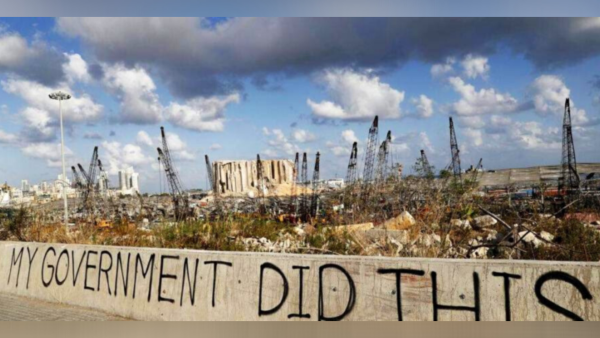Even though two months have gone by since the devastating Beruit explosion that hit the city's port killing hundreds of people, injuring thousands, and destroying millions of dollars worth of public and private properties, Lebanon seems nowhere near recovering.
Almost two months since the #BeirutBlast, and the aftermath still lingers on. @UNDP_Lebanon's volunteers are still on the ground in #Karantina and have already assessed 36 homes and 67 businesses to be fixed and repaired. #BuildingLebanonForward pic.twitter.com/JCLoxfPJrA
— UNDP Lebanon (@UNDP_Lebanon) October 2, 2020
Two months since the #beirutexplosion and today is the first day I begin to process the loss. Responses to trauma are extremely diverse from acute to long-term and more complex reactions. What is sure is that this #trauma is here to stay. There is no healing without #justice pic.twitter.com/wdg8rdGmme
— Mia Atoui (@MiaAtoui) October 4, 2020
Yesterday, on the second month anniversary of the unforgettable blast, many Lebanese people took to social media to express their sorrow over their personal losses due to the bloody event of the 4th of August.
While many people shared photos remembering victims they are missing, some also shared photos of injured people who are still trying to overcome the consequences of that catastrophe.
My mom and 92-year-old jeddo were among the wounded after the #BeirutExplosion at the port.
— Aya(t) (@Aya_Isk) October 4, 2020
They have recovered and are doing well, but others were not so lucky.#لبنان_منكوب
pic.twitter.com/AIhyRXoumz
2 months ago today, my husband and I lost our son Isaac in the #BeirutBlast. After much consideration we decided to participate in a @4corners interview. Our beautiful boy had his life cut short in the cruelest way possible & we felt his story deserved to be told. Tomorrow 8:30pm https://t.co/Dt5hsOBU4V
— Sarah Copland (@sas_yvonne) October 4, 2020
Additionally, some users wrote about their experiences saying that they have yet to process the events of the shocking event and how they are still suffering from trauma following that day.
The Beirut blast had ignited a months-old public frustration with the Lebanese political elite, whose members had fought against each other during the civil war between 1975-1990 before they signed the Taif Accord that had set a sect-based political system that allowed all political parties to share power.
Protests that erupted on the 17th of October 2019 had blamed the acute economic crisis and the free fall of the local currency on those politicians, saying that they "are all corrupt and had all been taking advantage of being in power, impoverishing more than 4 million Lebanese people residing in the country."
2 months today since #beirutexplosion
— Hashem Osseiran (@HashemOsseiran) October 4, 2020
-More than 190 killed & at least 6500 wounded
-Billions in damages
-Investigations yet to yield results
-No senior official in govt/parliament behind bars
-No new govt after outgoing cabinet resigned in wake of blast#لن_ننسي #انفجار_بيروت pic.twitter.com/8h6zHQQd5D
They’re not martyrs. 200 victims were killed by the corrupt political class & warlords in the #BeirutExplosion 2 months ago, the 4th of August 2020. It’s up to us now to rebuild not just the rubble but the whole crumbling foundation of their criminal polity. #BeirutBlast #Lebanon pic.twitter.com/NykE63Ibkc
— Anthony El Haiby أنطوني الهَيبي (@AnthonyElHaiby) October 4, 2020
Consequently, the blast that has not yet been investigated thoroughly has been blamed on the various Lebanese parties, resulting in the government's resignation and a failure to form another cabinet, despite the pressure exerted by the French president who has been directly involved in the political process since the explosion.







